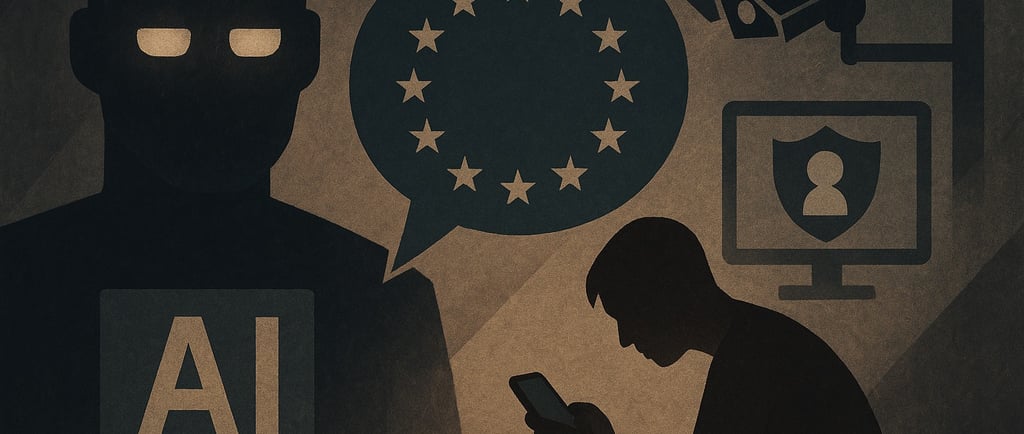Concerns Over EU's Chat Control Legislation
The EU's proposed Chat Control legislation aims to combat child pornography but raises serious concerns about privacy and mass surveillance. Critics argue that the legislation could lead to wrongful accusations and undermine fundamental rights. As the debate continues, the challenge remains to protect children without sacrificing the privacy of all users.
POLICYFUTURETOOLSUSAGE
AI Shield Stack
8/6/20252 min read


The European Parliament is currently deliberating on a controversial piece of legislation known as Chat Control, aimed at combating child pornography through systematic scanning of private communications. Critics, however, argue that this proposal poses significant risks to privacy, akin to allowing the state to read personal letters before they are sealed. The implications of such legislation, which would mandate platforms like WhatsApp, iMessage, and Gmail to implement government-mandated AI scanning technology, could lead to a new era of online mass surveillance.
As the European Commission pushes forward with this initiative, concerns are mounting over the potential for misuse and overreach. Legal experts, such as Andreas Shialaros, have cautioned that the legislation could lead to the wrongful targeting of innocent users, such as teenagers engaged in sexting or parents sharing photos of their children. This raises a fundamental question about the ability of AI to accurately interpret context and intent in human communication.
MEP Giorgos Georgiou has voiced strong opposition to the proposal, highlighting the need for strong encryption as a safeguard against cybercriminals and authoritarian regimes. He emphasizes that while protecting children is a priority, it should not come at the expense of violating fundamental privacy rights. The challenge lies in finding a balance that ensures both child safety and privacy protection for all users.
Loucas Fourlas, another MEP, echoes these sentiments, noting that many parliament members are wary of endorsing measures that might lead to blanket surveillance or compromise private communications. The urgency of the situation is underscored by growing public concern over privacy erosion, with many fearing that Chat Control could pave the way for a broader surveillance infrastructure.
As the debate unfolds, the bill's future remains uncertain, especially with Germany and several other EU countries undecided on their stance. The proposed legislation requires support from at least 55% of member states, representing 65% of the EU population, to pass. Critics argue that the timing of this legislation, coinciding with similar moves in authoritarian regimes, raises alarms about the true motivations behind it.
Experts warn that the implementation of AI-driven scanning could lead to unintended consequences, such as the potential for facial recognition and other invasive monitoring tactics. The normalization of such surveillance technologies, under the guise of child protection, could ultimately compromise the privacy of all citizens.
In a world where digital privacy is increasingly under threat, the need for robust protections becomes ever more critical. As the EU moves forward with discussions on Chat Control, stakeholders must remain vigilant to ensure that the rights of individuals are not sacrificed in the name of safety.
AI Shield Stack (https://www.aishieldstack.com) offers solutions to help organizations navigate these complex legal landscapes while maintaining their commitment to user privacy and security.
Cited: https://cyprus-mail.com/2025/08/31/eu-wide-law-proposal-fraught-with-dangers
